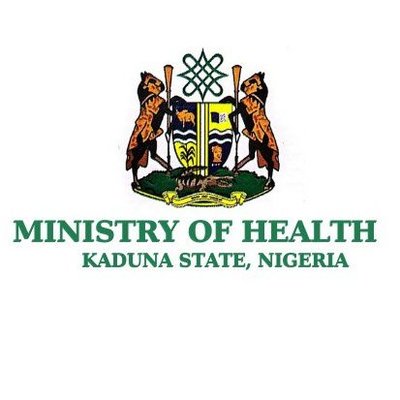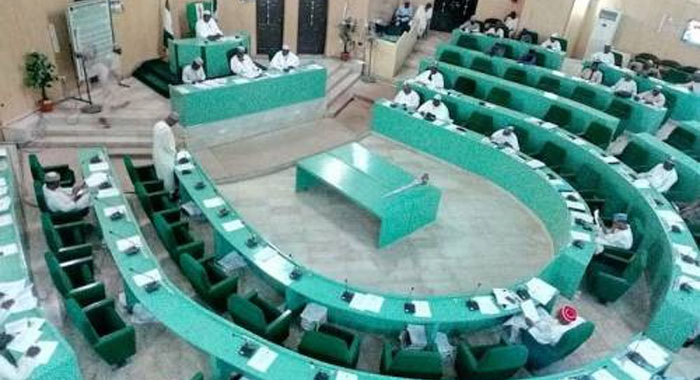Health
Proposed bill on compulsory 5-year service for doctors has good intention — Minister
The Minister of Health, Dr Osagie Ehanire, says the compulsory
five-year service for graduates in medical and dental fields before being granted full licence
proposed in a bill by the House of Representatives is with good intention.
He made his position known on Friday in an interview with the News Agency of Nigeria (NAN) in Abuja.
NAN reports that the title of the amendment bill, sponsored by Rep. Ganiyu Johnson, reads: “A Bill for an
Act to Amend the Medical and Dental Practitioners Act, Cap. M379, Laws of the Federation of Nigeria, 2004.
“It is to mandate any Nigeria-trained Medical or Dental Practitioner to Practice in Nigeria for a minimum of
five years before being granted full licence by the Medical and Dental Council of Nigeria (MDCN).
“It is to make quality health services available to Nigeria; and for Related Matters (HB.2130).”
The bill passed for second reading on April 6.
According to Ehanire, the intention is good because it is talking about curbing brain drain of doctors.
He said “if I can read the mind of Johnson properly, he wants to be able to keep those who have studied
here a bit longer for some time before they can be free to go.
“If you look at the fact that the fees we pay at our universities, definitely they do not make up for the cost
of training.
“If you want to know what it costs to train a doctor, go to a private university and know what they pay for school fees.
“That is a benchmark of what it costs but in our public universities, we don’t pay anything near that.
“So, actually, it means that it is subsidised with taxpayers money because if the government allows you to get training
for about one-tenth or one-twentieth of the cost of the private university, then it means it is subsidised.
“Therefore, I’m sure Ganiyu was thinking about those in that category who should also give back to the country,
having received classy education that is respected outside.
“This is because even the cost of training here is very small compared to school fees paid in foreign countries to
become a doctor. I think this is the angle the representative was looking at the issue from.”
Ehanire added that it may not necessarily have to be by law because the moral understanding is also
clear if one has received quality education and then gives back to the sponsor.
“So, I think maybe the same moral issue people have to look at is whether the bill goes through or not,
but this remains a moral issue”, he said.
Meanwhile, some Diaspora Medical Associations also added their voices to the issue.
In a letter to the Speaker of the House of Representatives, Rep. Femi Gbajabiamila, they said that the bill,
which purportedly seeks a way to address the adverse effects of brain drain, may not be the most effective
intervention to resolve the situation.
The letter was titled: “Re: A Position Statement From Diaspora Medical Associations- Bill Seeking to Restrict
Newly Qualified Medical Doctors and Dentists from Leaving Nigeria.”
The letter was signed by Dr Emeka Ugwu, the President, Nigerian Doctors’ Forum, South Africa, Dr Chinyere Anyaogu, the
President, Association of Nigerian Physicians in the Americas, and Dr Chris Agbo, the President, Medical Association
of Nigerians Across Great Britain.
Dr Nnamdi Ndubuka, the President, Canadian Association of Nigerian
Physicians and Dentists and Dr Al Amin Dahiru, the President, Nigerian Medical Association-Germany, also signed the letter.
According to the letter, the bill will be counterproductive and will not achieve its intended goal.
It stated that “we recognise the problems posed by the exodus of Nigerian medical professionals from our health system,
including, but not limited to decreased access to healthcare services and lack of quality of care.
“Care delivery deserts the inability to adequately enact healthcare and public health policy due to lack of manpower and leadership resource.
“The medical or dental practitioner is the glue that keeps the team functional and the leading force for effective healthcare delivery system.”
The group also said that diaspora healthcare workers would be willing to return to Nigeria if an enabling environment
exists, reversing the trend and helping to solve the problem.
The House of Representatives has passed for second reading, a Medical and Dental Practitioners Act (Amendment) Bill, 2022, which seeks to make it compulsory for graduates in medical and dental fields to render services within Nigeria for five years before being granted full license.
Sponsor of the motion, Ganiyu Johnson (APC/Lagos) said the move was to check the mass exodus of medical professionals from the country.
Health
KDSG trains 180 Red Cross volunteers on Lassa Fever intervention

The Kaduna State Ministry of Health has begun a three-day training for 180 Red Cross volunteers on Lassa fever intervention.
The training, which is facilitated by the ministry and funded by the Red Cross, is meant to equip the volunteers selected from 5 LGAs in the state with necessary skills.
The volunteers were drawn from Zaria, Igabi, Kaduna South, Kaduna North and Chikun Divisions.
The State Epidemiologist, Dr Jeremiah Dikwu, said the volunteers were trained with the knowledge needed to massively intervene during cases of Lassa fever in the state.
He said that the intervention would include Risk Communication and Active Case Search, Psychological First Aid, Rodent Control and Hygiene Promotion for the next 3 months.
Dikwu said the training started with 30 volunteers on surveillance and would end with the training of 150 volunteers on Risk Communication and Community Engagement .
According to him, Lassa fever is a viral hemorrhagic fever transmitted by rats.
He added that Lassa fever has been known since the 1950s, but the virus was not identified until 1969, when two missionary nurses died from it in the town of Lassa in Nigeria.
Dikwu added that Lassa fever was caused by a single stranded RNA virus and disseminated systemic primary viral infection.
“The main feature of fatal illness is impaired or delayed cellular immunity leading to fulminant viraemia,” he said
The epidemiologist said that Lassa fever presented symptoms and signs indistinguishable from those of febrile illnesses such as malaria and other viral hemorrhagic fevers such as Ebola.
“It is difficult to diagnose clinically but should be suspected in patients with fever (e”38°C) not responding adequately to antimalarial and antibiotic drugs.
“The most useful clinical predictors of Lassa fever are fever, pharyngitis, retrosternal pain, and proteinuria for diagnosis; and fever, sore throat, and vomiting for outcome,” Dikwu said.
He said that Ribavirin and general support were needed.
“Ribavirin is almost twice as effective when given intravenously as when taken orally, and if given within six days of the start of illness it may reduce deaths by 90 percent.
“Dehydration, oedema, hypotension, and poor renal function are common; fluid replacement or the use of blood transfusion requires careful monitoring,” he said.
Dikwu said the volunteers would be carrying out Risk communication and Community engagement, Active Case Search, Psychological First Aid, Rodent Control and Hygiene Promotion
Health
Assembly passes Kano Pre-Marital Health Screening Bill


Kano State House of Assembly has passed a bill for a law to compel intending couples to undergo HIV, hepatitis and sickle cell anaemia screening before marriage.
The passage followed deliberations in the Committee of the Whole House during plenary session,
presided over by the Speaker, Ismail Falgore on Monday in Kano.
After deliberations, the lawmakers approved the 3rd reading of the bill, read by the Deputy Clerk, Alhaji Nasiru Magaji.
Shortly after passage of the bill, the Majority Leader of the house, Lawan Hussein (NNPP-Dala), stated that “any person
intending to marry shall first submit self for medical examinations.”
He said the bill was considered and passed after the 3rd reading, following various legislative processes.
The leader further said that the bill was passed because the state had been battling with different health issues, including
HIV because people go into marriages without medical screening.
He said that the bill, if signed into law, would save many lives and curb the spread of life-threatening diseases.
“The bill will safeguard the health of citizens by institutionalising pre-marital testing to check the spread of diseases
like hepatitis, HIV and sickle cell anaemia,” he added.
Health
WHO to begin vaccination against Human Papilloma Virus May 27 in Kogi


The World Health Organisation (WHO), says it plans to commence vaccination against Human Papilloma Virus (HPV) on May 27 in Kogi.
The state’s Team Lead of WHO, Dr Muktar Toyosi, said this when he led his team on an advocacy visit to the State Council of the Nigeria Union of Journalists (NUJ) on Wednesday in Lokoja.
Toyosi said that the vaccination was meant for girl child of between the age nine and 14.
He said the ongoing sensitisation was to keep the people informed, and educate them on the vaccination of their children to protect them against cervical cancer in future.
”Kogi falls within the second phase of the programme. We are soliciting for the cooperation of the media in educating the people of the state on the HPV vaccination.
“There need for girls child across the state to take the vaccination to safeguard their future.
“Although the vaccine was initially scarce and difficult to get, the good news now is that it has been made available by the government,” Toyosi said.
Also speaking, the State Technical Assistant for WHO, Dr Ahmed Attah, said that the HPV mostly affect women, adding that the vaccination remained a preventive measure against the disease.
Attah, a former state Chairman of the Nigeria Medical Association (NMA) and a former Chief Medical Director (CMD), Kogi Specialist Hospital (KSSH) Lokoja, urged parents and guardians to avail their children of the vaccination to justify government’s investment.
In his response, the Kogi NUJ Chairman, Mr Seidu Ademu, described the health sector as very critical, stressing that the vaccination was a right step in the right direction.
Ademu promised a robust partnership with WHO to enable the team to achieve its set goals.
He stressed the need to inform, educate and sensitise the general public on the need to embrace the vaccine by ensuring that girls within the age range were vaccinated.
-
capital market2 years ago
Rt.briscoe, FBNH, Others halts negative performance of stock market
-
Finance3 months ago
Court orders Sen. Victor Umeh to repay N136m bank debt to AMCON
-



 Abuja Update2 months ago
Abuja Update2 months agoUNDP, FG partnership needed to achieve inclusion, equity- Minister
-
Abuja Update1 month ago
Banks drive stock market performance with N147bn gain
-



 Business1 week ago
Business1 week agoTingo Group unveils Tingo Electric, Tingo Cola drink at Lagos launch
-



 Health2 weeks ago
Health2 weeks agoCapacity training will reduce migration of health workers- NPHCDA
-
News4 months ago
Oil thieves sponsoring malicious media campaign against Navy – Spokesman
-



 Infotech1 month ago
Infotech1 month agoWorld Backup Day: NITDA urges Nigerians to ensure backup of data




